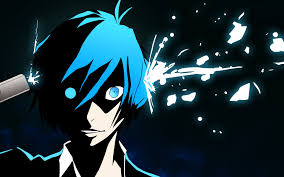anime
英 ['ænɪmeɪ; 'ænɪmə]
美 ['ænɪme]
anime 日本动画片来自日语对英语单词animate的改造,最终又以anime拼写传回英语。比较漫画,来自中文对日语manga的翻译,最终又来自汉字漫+画。
- anime (n.)
- c. 1985, Japanese for "animation," a term that seems to have arisen in the 1970s, apparently based on French animé "animated, lively, roused," from the same root as English animate (adj.). Probably taken into Japanese from a phrase such as dessin animé "cartoon," literally "animated design," with the adjective abstracted or mistaken, due to its position, as a noun.
Manga (q.v.) is Japanese for "comic book, graphic novel," but anime largely are based on manga and until 1970s, anime were known in Japan as manga eiga or "TV manga." The two terms are somewhat confused in English.
- 1. The word anime was generalized into everyday use.
- “anime”(日本动漫)一词已经普及到日常使用中.
来自互联网
- 2. TIME: Do anime and games require a similar creativity?
- 制作动慢和游戏所需的创造力,你认为是否是相同的哪?
来自互联网
- 3. Can't live without favorite songs, anime s and dramas!
- 生活里不能没有喜欢的歌曲, 动漫和连续剧!
来自互联网
- 4. How about other links between the early animations and contemporary anime?
- 又如何等各个环节之间的早期动画和现代动画?
来自互联网
- 5. I like anime robots and characters, but any angry robots is good.
- 我喜欢机器人动画和人物, 但任何愤怒的机器人是好的.
来自互联网
[ anime 造句 ]
